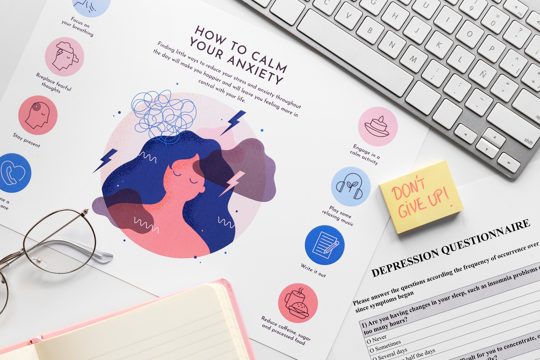Understanding Vestibular Migraine
Vestibular migraine, also known as migraine-associated vertigo, is a type of migraine that includes a vertigo component. Vertigo is a feeling of spinning, which can lead to nausea and difficulty with balance. Vestibular migraines can be challenging to manage, as they affect your sense of balance and can interfere with your daily activities.

However, certain dietary changes can help control the symptoms. Vestibular migraine, sometimes referred to as migraine-associated vertigo, is a unique migraine variant that incorporates a vertigo element.
Vertigo creates a sensation of spinning, often resulting in nausea and balance issues. These migraines present a management challenge due to their impact on your balance.
This can disrupt your routine daily tasks. Nonetheless, modifying your diet can aid in managing and controlling the symptoms.
Introduction to Vestibular Migraine Diet
A vestibular migraine diet involves consuming foods that are less likely to trigger migraines and avoiding those that are known to trigger migraines. Some people find that certain foods or drinks, such as aged cheese, red wine, and caffeine, can cause migraines or make them worse.

The goal is to identify and avoid these triggers. This diet can help reduce the frequency and severity of your migraines. A diet for vestibular migraines entails the intake of food items that have a lower probability of initiating migraines while steering clear of those recognized to cause them.
It has been observed that certain foods or beverages, like aged cheese, red wine, and caffeine, could potentially cause or exacerbate migraines in some individuals. The objective of this regimen is to pinpoint and circumvent these triggers.
By following this dietary approach, one can potentially decrease the regularity and intensity of their migraines. Hence, this diet could prove beneficial in managing your migraines.
Identifying Your Triggers
The first step in following a vestibular migraine diet is identifying your triggers. Trigger foods are different for everyone, but common ones include aged cheeses, alcoholic beverages, caffeine, and processed foods.

Keep a food diary to track what you eat and when you get migraines. This can help you determine if there is a connection between certain foods and your symptoms. Starting a diet for vestibular migraines involves first pinpointing your triggers.
Foods that trigger these migraines vary from person to person, but frequently incriminated are aged cheeses, alcohol, caffeine, and processed foods. Maintaining a food diary is a useful method to keep track of your dietary intake and migraine occurrences.
By noting what you consume and when migraines happen, you can observe any patterns. This practice could assist you in establishing a link between specific foods and the manifestation of your symptoms.
Focus on Fresh Foods
Try to consume mostly fresh foods. Processed foods often contain additives and preservatives, such as monosodium glutamate (MSG), that can trigger migraines. Fresh fruits, vegetables, lean meats, and whole grains are less likely to cause migraines.

They also provide a variety of nutrients that can support overall health. Aim to have a diet rich in fresh foods.
Many processed foods have additives and preservatives like monosodium glutamate (MSG) which could initiate migraines. Eating fresh fruits, vegetables, lean meats, and whole grains will likely reduce the risk of migraines. These foods not only decrease the chance of headaches but also deliver many nutrients essential for your general health.
Steer clear of processed foods and focus more on fresh ones for a healthier lifestyle and fewer migraines.
Limit Caffeine
While small amounts of caffeine can help relieve a migraine in some people, too much can trigger one. Try to limit your intake of caffeinated beverages, including coffee, tea, and soda.

If you currently consume a lot of caffeine, reduce your intake gradually to avoid withdrawal symptoms. Remember, even decaffeinated beverages often contain small amounts of caffeine.
In some individuals, moderate caffeine consumption may aid in mitigating migraines, however, excessive amounts could potentially induce them. It's advisable to moderate your consumption of drinks containing caffeine, such as coffee, tea, and soda. If your current caffeine intake is high, consider decreasing it slowly to prevent withdrawal symptoms.
Take note, even drinks labeled as decaffeinated often still have traces of caffeine. Therefore, monitoring your caffeine intake is crucial for managing migraines.
Avoid Alcohol
Alcohol, especially red wine and beer, is a common trigger for migraines. If you notice a correlation between consuming alcohol and experiencing migraines, it's best to avoid it. It's also important to stay hydrated, as dehydration can trigger migraines.

Drink plenty of water throughout the day. Consumption of alcohol, particularly red wine and beer, frequently leads to migraines.
You might observe that your migraines often follow drinking alcohol. If this is the case, it's advisable to stay away from it. Staying hydrated is also crucial since lack of water can induce migraines.
Therefore, ensure you consume ample water all day long.
Stay Hydrated
Hydration is critical in managing vestibular migraine symptoms. Dehydration can lead to headaches and trigger a migraine. Aim for at least eight glasses of water per day, but remember, individual needs can vary.

Foods with high water content, like fruits and vegetables, also contribute to your hydration. It is crucial to stay hydrated to control symptoms of vestibular migraines. Not drinking enough water can cause headaches and potentially initiate a migraine attack.
You should strive to consume a minimum of eight glasses of water daily, although the quantity may differ based on individual requirements. Foods rich in water content, such as fruits and vegetables, can also help in maintaining hydration levels.
Always remember that proper hydration is key to managing migraines effectively.
Regular Meal Times
Skipping meals or eating at irregular times can trigger migraines. Try to eat at regular intervals to keep blood sugar levels stable. Three meals a day with a couple of healthy snacks in between is a good pattern to follow.

Regular meal times also help regulate your body's internal clock, which can help manage migraines. Migraines can be induced by missing meals or having an erratic eating schedule. Ensuring you eat consistently can help maintain steady blood sugar levels.
Following a routine of three meals daily, supplemented with a few nutritious snacks, is advisable. This consistent meal schedule also aids in synchronizing your body's internal clock. Consequently, this can be beneficial in controlling migraines.
Dairy Products
Some people find that dairy products trigger their migraines. If this is the case for you, consider alternatives like almond milk or soy products.

However, not everyone is sensitive to dairy, and it provides important nutrients like calcium and vitamin D. If dairy doesn't trigger your migraines, there's no need to avoid it.
Dairy products are known to instigate migraines in some individuals. If you're among these people, you might want to think about substitutes such as almond milk or soy-based items. On the other hand, dairy isn't a migraine trigger for everyone.
Besides, it's a good source of essential nutrients like calcium and vitamin D. So, if consuming dairy doesn't cause you migraines, there isn't any necessity to steer clear of it.
Limit Salt Intake
A high-salt diet can lead to dehydration, which in turn can trigger migraines. Try to limit your salt intake by avoiding processed foods and not adding extra salt to your meals.

Instead, flavor your food with herbs and spices. Always check food labels for sodium content.
Consuming a diet rich in salt may result in dehydration, a condition that could potentially cause migraines. It's advisable to reduce your salt consumption, particularly by staying away from processed foods.
Refrain from sprinkling additional salt on your dishes as well. Opt for herbs and spices to enhance the taste of your food. Be sure to review the sodium content on food labels regularly.
Avoid Artificial Sweeteners
Artificial sweeteners, like aspartame, can trigger migraines in some people. Try to avoid foods and drinks that contain these ingredients.

Instead, sweeten your food with natural sweeteners like honey or maple syrup. Be aware that these also contain calories and should be used in moderation.
Certain individuals may experience migraines as a result of consuming artificial sweeteners such as aspartame. It's advisable to steer clear of food and beverages that include these components.
Opt for natural sweeteners, such as honey or maple syrup, to add sweetness to your meals. However, keep in mind that these natural alternatives also have caloric content.
Therefore, they should be utilized sparingly.
Consider a Low Tyramine Diet
Tyramine is a substance found in certain foods, like aged cheeses, smoked fish, and some beans. Some people find that a diet high in tyramine can trigger migraines. If this is the case for you, consider a low-tyramine or tyramine-free diet.

Always consult with a healthcare professional before starting any new diet. Tyramine is a compound present in specific foods such as aged cheeses, smoked fish, and certain beans. Some individuals may experience migraines as a result of consuming a tyramine-rich diet.
If you're one of these people, you might want to think about adopting a diet that's either low in tyramine or completely free of it. However, it's important to always seek advice from a healthcare professional.
This should be done before you begin any new dietary regimen.
Omega-3 Fatty Acids
Omega-3 fatty acids, found in fish, flaxseeds, and walnuts, can help reduce inflammation in the body. Some research suggests that omega-3 fatty acids may reduce the frequency and severity of migraines. Try to incorporate more of these foods into your diet.

However, avoid fried or heavily processed fish, as these can trigger migraines. Omega-3 fatty acids have the potential to lessen inflammation in the body and are found in foods such as fish, flaxseeds, and walnuts.
Studies have hinted that these fatty acids could possibly decrease the occurrence and intensity of migraines. It would be beneficial to include more of these foods in your regular eating habits.
Take note, however, to steer clear of fish that is fried or excessively processed. Such foods are known to potentially instigate migraines.
Magnesium-Rich Foods
Magnesium is a mineral that is important for many bodily functions, and it may help prevent migraines. Foods rich in magnesium include green leafy vegetables, nuts and seeds, and whole grains. Try to include these foods in your diet.

However, avoid taking supplements without first consulting with a healthcare professional. Magnesium, a crucial mineral, plays a vital role in various body functions and could assist in averting migraines.
You can find this essential nutrient in abundance in green leafy vegetables, nuts, seeds, and whole grains. It's advisable to incorporate these magnesium-rich foods into your daily meals. Nonetheless, it's essential not to consume supplements without professional guidance.
Always seek advice from a healthcare professional before starting any supplement regimen.
Practice Mindful Eating
Mindful eating involves paying attention to what you're eating and how it makes you feel. This can help you identify potential food triggers for your migraines. Take the time to eat slowly and savor your food.

This can also help prevent overeating, which can trigger migraines in some people. Being attentive to your food intake, known as mindful eating, can enable you to recognize certain foods that may trigger your migraines. It's about observing the impact of what you eat on your feelings.
A slower pace in consuming your meals, allowing you to relish every bite, is a part of this approach. This method can also serve as a preventive measure against overindulgence in food. Overeating is known to provoke migraines in some individuals.
Healthy Fats
Healthy fats, like those found in avocados, nuts, and seeds, can help reduce inflammation in the body. This may help prevent migraines.

Try to include these foods in your diet. However, avoid unhealthy fats, like those found in fried foods and processed snacks, as these can trigger migraines.
Fats that are beneficial to health, such as those in avocados, nuts, and seeds, have the ability to lower inflammation in the body. This could potentially aid in averting migraines. It is recommended to incorporate these types of food into your daily diet.
On the contrary, unhealthy fats should be avoided. These are typically found in fried and processed foods and can often instigate migraines.
Exercise Regularly
Regular exercise can help manage stress, improve circulation, and promote overall health, all of which can help prevent migraines. Aim for at least 30 minutes of moderate activity most days of the week. However, avoid overly intense exercise, as this can trigger migraines for some people.

Always consult with a healthcare professional before starting a new exercise program. Engaging in regular exercise can aid in regulating stress, enhancing blood flow, and fostering general health, which can all contribute to migraine prevention. It is advisable to strive for a minimum of 30 minutes of moderate exercise on the majority of days in a week.
Be cautious not to engage in excessively strenuous workouts, as these can induce migraines in certain individuals. It is always important to seek advice from a medical professional. This should be done before commencing any new fitness regimen.
Get Enough Sleep
Lack of sleep can trigger migraines. Aim for 7 to 9 hours of sleep per night.

Keep a regular sleep schedule, even on weekends. This helps regulate your body's internal clock, which can help prevent migraines. Insufficient sleep may be a cause of migraines.
Strive to achieve between 7 and 9 hours of sleep every night. Maintain consistency in your sleep routine, even during the weekends.
Doing so assists in synchronizing your body's internal clock. This synchronization can be useful in averting migraines.
Manage Stress
Stress is a common trigger for migraines. Try to find healthy ways to manage stress, like yoga, meditation, or deep breathing exercises.

Regular exercise and getting enough sleep can also help manage stress. Remember, it's important to take time for yourself to relax and unwind. Migraines are often triggered by stress, making stress management crucial.
Healthy stress management techniques, such as yoga, meditation, and deep breathing exercises, are highly recommended. In addition, regular physical activity and sufficient sleep can also assist in managing stress levels.
Don't forget, it's vital to dedicate personal time for relaxation and decompression. By doing so, you can effectively keep your stress under control and potentially reduce the frequency of migraines.
Consult a Healthcare Professional
Before making any major changes to your diet or lifestyle, it's important to consult with a healthcare professional. They can provide guidance based on your individual health needs and goals. They can also monitor your progress and make adjustments as necessary.

Remember, what works for one person may not work for another. It's crucial to seek advice from a healthcare professional prior to initiating significant alterations to your diet or lifestyle.
This professional can offer advice tailored to your specific health requirements and objectives. Furthermore, they have the ability to track your progress over time. If needed, they can fine-tune your plan.
Keep in mind, a strategy that is effective for one individual might not yield the same results for another.
Conclusion
Following a vestibular migraine diet can help manage your symptoms and improve your quality of life. It involves identifying and avoiding your food triggers, staying hydrated, eating at regular times, and making healthy food choices.

Regular exercise, getting enough sleep, and managing stress are also important. Always consult with a healthcare professional before making any major changes to your diet or lifestyle.
Adhering to a diet specifically designed for vestibular migraines can aid in symptom control and enhance your lifestyle. This diet requires the recognition and avoidance of trigger foods, consistent hydration, and maintaining a regular eating schedule with nutritious selections. Incorporating regular physical activity, sufficient sleep, and stress management techniques are equally crucial.
Prior to implementing significant modifications to your dietary or lifestyle habits, it is always advisable to seek guidance from a healthcare expert. Thus, this approach could potentially offer a holistic method for managing your condition.
About us
Welcome to HealsHub! Your go-to source for all things related to health and wellness! We're here to help you lead a healthier, happier life by providing you with the latest news, research, and advice on topics like nutrition, fitness, mental health, and more. Our mission is to empower you to take control of your health and well-being through education and inspiration. Whether you're looking to lose weight, build muscle, manage stress, or simply learn more about how your body works, you'll find everything you need right here on healshub.com. We believe that everyone deserves to live a healthy, fulfilling life, and we're committed to providing you with the tools and resources you need to achieve your goals. So take a look around, explore our articles and resources, and start your journey towards better health today!

